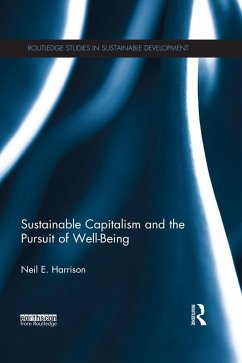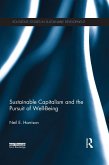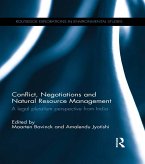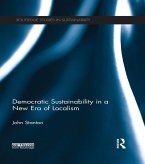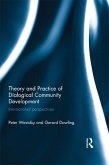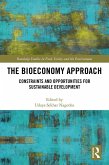Sustainable development is the central challenge of the 21st Century. How can human civilization continue to develop without destroying the natural systems on which it depends?Environmentalists tell us that capitalism is the problem because it feeds our self-interest. They tell us that we have to restrain ourselves and only consume what the Earth can sustain. Or governments must tell us what we can and cannot buy. This book uses the science of complex systems to explain why governments cannot deliver sustainability or happiness and how self-interest can be used to make society sustainable.
Capitalism won the Cold War; until the Great Recession of 2008, it seemed to be the perfect system. But more of us are unhappy even as it has ravaged the planet. The central problem is the paradigm on which our social systems are founded that more (consumption, production, possessions) is always better. Based on research from political economy, philosophy, and psychology, this book shows that the problem is not self-interest. We are unhappy because we have been taught that our interests are material and that buying 'stuff' will make us happy. Yet, social pressure to consume only prevents us from satisfying our basic psychological needs and fully enjoying life. For that we need to pursue our personal well-being. Because this also reduces our material consumption, environmental sustainability comes from each of us knowing what's truly good for our selves. Even without the constant economic growth that harms the planet and damages our lives, capitalism also is sustainable. This book will be of interest to scholars and students of sustainability;civil societyactivists and social entrepreneurs; thought leaders and policymakers.
.
Capitalism won the Cold War; until the Great Recession of 2008, it seemed to be the perfect system. But more of us are unhappy even as it has ravaged the planet. The central problem is the paradigm on which our social systems are founded that more (consumption, production, possessions) is always better. Based on research from political economy, philosophy, and psychology, this book shows that the problem is not self-interest. We are unhappy because we have been taught that our interests are material and that buying 'stuff' will make us happy. Yet, social pressure to consume only prevents us from satisfying our basic psychological needs and fully enjoying life. For that we need to pursue our personal well-being. Because this also reduces our material consumption, environmental sustainability comes from each of us knowing what's truly good for our selves. Even without the constant economic growth that harms the planet and damages our lives, capitalism also is sustainable. This book will be of interest to scholars and students of sustainability;civil societyactivists and social entrepreneurs; thought leaders and policymakers.
.
Dieser Download kann aus rechtlichen Gründen nur mit Rechnungsadresse in A, B, BG, CY, CZ, D, DK, EW, E, FIN, F, GR, HR, H, IRL, I, LT, L, LR, M, NL, PL, P, R, S, SLO, SK ausgeliefert werden.

